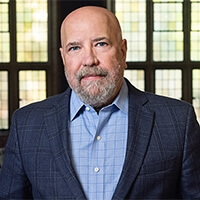All the President’s Money? The Power of the Purse in the Age of Presidential Control
It is often said that Congress has the power of the purse. But what does that actually mean, both as a matter of law and in practice? How have law and practice changed in the 50 years since Congress overhauled the budget system in the Congressional Budget and Impoundment Control Act of 1974? And how should we as citizens think about the balance of power between Congress and the Executive on spending?
This book—the first full-length study of these issues since Louis Fisher published Presidential Spending Power in 1975—advances two core arguments. The first argument is that as spending has become more and more important to policy changes in the federal government, Congress has become less and less involved in providing meaningful constraints on presidential practices, to the varying delight of partisans who approve of the particular policies a given presidential administration is advancing but to the overall detriment of the country. The second argument is that a workable government requires that the executive branch has a fair amount of spending discretion, and so the key is finding constraints on overbearing presidential action while allowing expert and accountable discretion to be lodged in the bureaucracy. How to balance congressional constraints on dangerous presidential control over spending while allowing necessary executive branch discretion over spending is the key challenge of the book.
The subject matter of this book is related to ongoing debates about the existence and scope of the administrative state more generally. While sharing a family resemblance, however, spending and regulation are differently situated along a number of dimensions, as a growing body of scholarship has begun to document. A different legal regime, rooted in the fiscal control statutes of Title 31 of the U.S. Code rather than the Administrative Procedure Act, applies. Regulatory statutes are rarely amended, but the annual appropriations process provides a regular must-pass opportunity for substantive limitations and adjustments. There are few opportunities for public participation in priority-setting and policy-making anywhere in the executive spending process, in contrast to the widespread availability of public participation throughout other administrative processes. Many executive spending decisions are far less transparent than other final administrative decisions. Executive spending decisions are far less subject to judicial review because of the many special justiciability hurdles that such decisions present. And a functional government requires the ability to make frequent decisions about spending, while regulation happens on a much longer timeframe. The typical legal limits that administrative law provides have a different valence in the spending context, then. How and whether to incorporate modifications into the spending state from the framework of the regulatory state (or vice versa) is a theme this book takes up.
The book unfolds in three substantive parts: Funding the Government, Spending Government Funds, and Overseeing Government Spending. The book unpacks the legal frameworks that apply in each of these categories and illustrates the ways these frameworks operate in the modern era. Methodologically, the book draws on interviews with executive branch officials, legislative staff members, and advocates to develop themes and insights about the balance between executive branch discretion and legislative control in spending. The book also draws on a new dataset of appropriations law decisions published by the Government Accountability Office dating back to the Clinton administration.
About the Public Law Workshop
Michigan’s Public Law Workshop provides an opportunity for faculty and students from across the University to enjoy weekly presentations by leading scholars producing current work on topics ranging from constitutional law and administrative law to international law, statutory interpretation and beyond. Professors Julian Mortenson and Daniel Deacon organize the workshop. If you would like to receive workshop announcements, please contact Alex Wroble ([email protected]) and ask to have your name added to the workshop’s email list.






